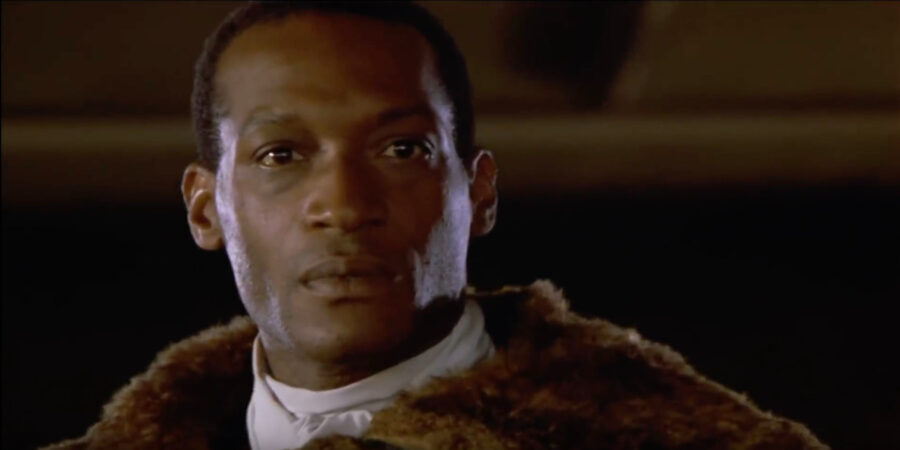By Drew Dietsch
| Published

Back in 2019, streaming service Shudder released the documentary Horror Noire: A History of Black Horror. It was widely seen as a success in the horror community and even led to an anthology movie in 2021 with the same name.
Six years after its release, I wanted to revisit the documentary to see if it still holds up.
Horror History Is Film History, Black History Is Black Horror

I’m happy to report that Horror Noire: A History of Black Horror remains an engaging and illuminating piece of cinematic analysis. While the marquee will attract horror nerds, anyone who cares even a little about film history needs to devote 83 minutes of their day to this documentary.
As is often the case, the horror genre in film is a particularly illuminating facet of contemporary culture and movie history itself. Horror Noire: A History of Black Horror uses that to its advantage to not only highlight horror films from Black creatives, but also to examine the larger societal shifts and viewpoints influencing the art being made at that time.
And like it is stated in the documentary, the examination of Black art and history is inescapably linked to the horrors Black people have endured due to systemic racism in America. It’s an important mission statement when the infamous Birth of a Nation kicks off the historical conversation and D.W. Griffith’s landmark film is labeled as a horror movie for Black folks.
Perspective Matters

It’s that kind of empathetic perspective that makes Horror Noire: A History of Black Horror such a vital entry in the long list of film-centric documentaries. As a marshmallow fluff white guy, getting to see the viewpoints and opinions of Black artists on the genre I love is something I absolutely need in order to better my own understanding of art.
For example, I love Candyman. It’s one of my all-time favorite horror movies and I’ve even argued that it could very well be the best horror movie of the 1990s. And it certainly gets its accolades in Horror Noire: A History of Black Horror with Tony Todd himself (RIP) showing up as one of the interview subjects.
However, it was truly fascinating and revealing to hear the other interviewees pick apart Candyman as something that “came from the mind of a white guy.” Being able to provide those kinds of critical perspectives is one of the most valuable and effective elements of Horror Noire: A History of Black Horror. I was never going to be able to see Candyman from those angles because I’m not capable of formulating that kind of perspective on my own.
It doesn’t make me suddenly dislike Candyman just because there are valid criticisms about Black representation and motivation from Black voices. In fact, it adds more richness to the movie now. And that rings true for so many of the films covered in Horror Noire: A History of Black Horror.
Get Ready To Add To Your Watchlist

Thankfully, Horror Noire: A History of Black Horror also succeeds at the goal of every documentary about a catalog of movies: leaving the viewer with lots of cool flicks to track down. You’ll get your fill of famous flicks like Night of the Living Dead but will also walk away with less recognizable recommendations like the mesmerizing Eve’s Bayou or the superfly Sugar Hill.
That’s another aspect of Horror Noire: A History of Black Horror worth celebrating: the breadth of its coverage. Using the smash success of Get Out as its bookends, the documentary does a great job examining each decade in film and leaving you with expert analysis as well as a diverse spectrum of movies to check out.
You can explore something more meditative and artsy with Bill Nunn’s Ganja & Hess, get utterly nutty with The Exorcist ripoff Abby, or check out some personal favorites of mine like the knockout anthology Tales from the Hood, the underappreciated Bones, or one of the outright greatest movies of the ‘90s, Tales from the Crypt Presents: Demon Knight.
If you watch Horror Noire: A History of Black Horror and don’t walk away with at least one movie you are itching to see as soon as possible, I doubt that you actually love movies.
A Necessary Project

And that’s what Horror Noire: A History of Black Horror wants to foster, a love of movies. But after decades of predominantly white voices and white opinions steering the conversation, this documentary is a crucial interjection by marginalized viewpoints to help better enrich the world of cinema.
Years after its release, Horror Noire: A History of Black Horror is still a necessary project that adds so much to our understanding of film’s place in American culture. If you’ve never seen it, I urge you to check it out on Shudder. It’s one of the absolute best film documentaries ever made and is still getting me to discover movies and perspectives I’d never considered before. How much more of a recommendation could you want?

